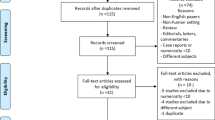Abstract
We sought to identify specific testing conditions that may negatively impact patient experience with Penile duplex Doppler ultrasound (PDDU). We developed a survey designed to assess perception with several predetermined clinical-environment factors. Patients completed the voluntary written-survey at the time of PDDU between January 2022 and June 2024. 37.4% of patients reported at least one of the following negatively impacted their experience: bright lights, hallway noises, room temperature, and frequent staff assessments. Preference regarding clinician gender and type (physician versus advanced practice provider) was also assessed. When assessed prior to starting the consultation, we found that 57.6% reported no provider preference, while 40.6% preferred consultation with physicians. 72.6% reported no provider gender preference, while 25.2% preferred males. In contrast, when assessed at the completion of the consultation, 84.4 and 85.7% reported no preference regarding provider type or gender, respectively. Based on interim analysis of survey response data, a call-button was implemented for patients to alert staff when adequate erection rigidity was achieved during testing. The mean time to response decreased significantly from 15.6 min ±4.2 to 11.2 min ±4.2 (p < 0.001). Further work is needed to validate and identify additional modifiable factors that can be improved upon to enhance patient experience.
This is a preview of subscription content, access via your institution
Access options
Subscribe to this journal
Receive 12 print issues and online access
$259.00 per year
only $21.58 per issue
Buy this article
- Purchase on SpringerLink
- Instant access to the full article PDF.
USD 39.95
Prices may be subject to local taxes which are calculated during checkout





Similar content being viewed by others
Data availability
The datasets generated during and/or analysed during the current study are available from the corresponding author on reasonable request.
References
Lue TF, Hricak H, Marich KW, Tanagho EA. Vasculogenic impotence evaluated by high-resolution ultrasonography and pulsed Doppler spectrum analysis. Radiology. 1985;155:777–81.
Ziegelmann MJ, Bajic P, Levine LA. Peyronie’s disease: contemporary evaluation and management. Int J Urol. 2020;27:504–16.
Kho YY, Lee SHE, Chin K, Sidek NZ, Ma VC, Seng DH, et al. US of the penis: beyond erectile dysfunction. Radiographics. 2024;44:e230157.
Sikka SC, Hellstrom WJ, Brock G, Morales AM. Standardization of vascular assessment of erectile dysfunction: standard operating procedures for duplex ultrasound. J Sex Med. 2013;10:120–9.
Kuo YC, Liu SP, Chen JH, Chang HC, Tsai VF, Hsieh JT. Feasability of a novel audio-video sexual stimulation system: an adjunct to the use of penile duplex Doppler ultrasonography for the investigation of erectile dysfunction. J Sex Med. 2010;7:3979–83.
Montorsi F, Guazzoni G, Bocciardi A, Barbieri L, Rigatti P, Pizzini G, et al. Improved minimally-invasive assessment of penile haemodynamics: the combination of colour Doppler sonography and injection-stimulation test. Int J Impot Res. 1995;7:33–40.
Carneiro F, Nascimento B, Miranda EP, Cury J, Cerri GG, Chammas MC. Audiovisual sexual stimulation improves diagnostic accuracy of penile doppler ultrasound in patients with erectile dysfunction. J Sex Med. 2020;17:249–56.
Cannarella R, Calogero AE, Aversa A, Condorelli RA, La Vignera S. Differences in penile hemodynamic profiles in patients with erectile dysfunction and anxiety. J Clin Med. 2021;10:402.
Ravikanth R. Diagnostic categorization of erectile dysfunction using duplex color doppler ultrasonography and significance of phentolamine redosing in abolishing false diagnosis of venous leak impotence: a single center experience. Indian J Radiol Imaging. 2020;30:344–53.
O’Laughlin DJ, Strelow B, Fellows N, Kelsey E, Peters S, Stevens J, et al. Addressing anxiety and fear during the female pelvic examination. J Prim Care Community Health. 2021;12:2150132721992195.
Author information
Authors and Affiliations
Contributions
ET, KN, SC, SH, TK, MZ all helped with study design, data analysis, and manuscript writing/ revising.
Corresponding author
Ethics declarations
Competing interests
The authors declare no competing interests.
Ethics approval and consent to participate
The study protocol was deemed exempt by the institional review board at Mayo Clinic. The voluntary survey was anonymous and we did not gather any protected healthcare information.
Additional information
Publisher’s note Springer Nature remains neutral with regard to jurisdictional claims in published maps and institutional affiliations.
Supplementary information
Rights and permissions
Springer Nature or its licensor (e.g. a society or other partner) holds exclusive rights to this article under a publishing agreement with the author(s) or other rightsholder(s); author self-archiving of the accepted manuscript version of this article is solely governed by the terms of such publishing agreement and applicable law.
About this article
Cite this article
Tentis, E.R., Nelson, K.E., Carlson, S.M. et al. Setting the mood: improving patient satisfaction and clinic efficiency during penile duplex doppler ultrasound assessment. Int J Impot Res 38, 51–55 (2026). https://doi.org/10.1038/s41443-025-01099-2
Received:
Revised:
Accepted:
Published:
Version of record:
Issue date:
DOI: https://doi.org/10.1038/s41443-025-01099-2



